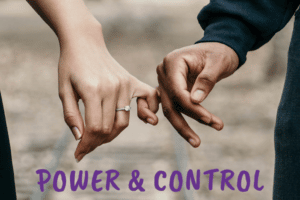A blog post advocating a change from “Why don’t you leave?” to “How can I support you?”
When family or friends call the Safe+Sound Somerset hotline or talk to us at community events, they often ask, “How they can I get my loved one or friend to leave their violent relationship?” They also wonder, “Why don’t they listen to me?”
There are many reasons people don’t leave abusive relationships – love, finances, staying to keep children with both parents, and trying to heal their partner are just a few. You can find more in depth about this topic in our blog post, “Why Do Survivors Stay?”
Telling someone to leave an abusive or unsafe relationship can have unintended consequences. It may make your loved one defensive, or feel ashamed and embarrassed about their situation. Then, this person may be less likely to trust or reach out to you in the future, even if the relationship becomes more unsafe, which it often does.
We recommend changing the conversation.
It’s important to give the survivor a choice of whether to leave or not. During an abusive relationship, one partner gains and keeps power and control over the target of abuse. As a result, the target loses the ability to make their own decisions, set boundaries, and give consent.
By asking how you can help your loved one or friend feel safe, instead of telling them to leave, you are empowering that person to make decisions on their own and find emotional safety with you. When someone has a choice about staying or leaving, they gain some of their power and control back. This strategy also lets your loved one know that you are there to support them.
Below are a few ways that you can support a loved one or friend by emphasizing safety:
- Tell them they you are concerned and explain why. Focus on behavior you have witnessed, instead of the person who is using abuse. You could say, “I noticed that your partner is checking in with you a lot on your phone, and you seem anxious. Is everything okay?”
- Ask them, “Do you feel safe in this relationship?” or, “How can I help you feel safe?” Always listen to their preferences. Focus the conversation on their needs and wants, while expressing concern for their safety. You can mention that abuse tends to get worse, which is one reason you are concerned.
- Provide information safely and remember that they might not be able to take information home. Help them find available resources and let them know that calling a hotline doesn’t mean they have to leave the relationship or participate in services. A call can just be about gathering information, not a commitment to act.
- You can refer them to our 24/7 call or text helpline (866-685-1122) or our online safety planning guide. Offer the use of your phone or computer so that their partner can’t track their activity. Our website also has a “safe escape” button that allows someone to leave quickly.
- Offer to choose a word or phrase together that the survivor can use to communicate with you in an emergency. This could be a signal for you to come pick them up, or to call the police or emergency service.
Your loved one or friend may tell you that they don’t want your help. Take care of yourself; you may need to take a step back. If you are being told to “Leave me alone,” or “Stop talking to me about this,” let them know help available and that you will support them whenever they need and are ready. Then, step away for a bit. Find other ways to show your ongoing support – offer to babysit, talk about other topics, invite them to dinner, or go for a walk together.
There are many ways to support a loved one or friend who is experiencing abuse in a relationship. If you are looking for help with your specific situation, call or text the Safe+Sound Somerset 24/7 helpline at 866.685.1122 to speak with a trained advocate.










